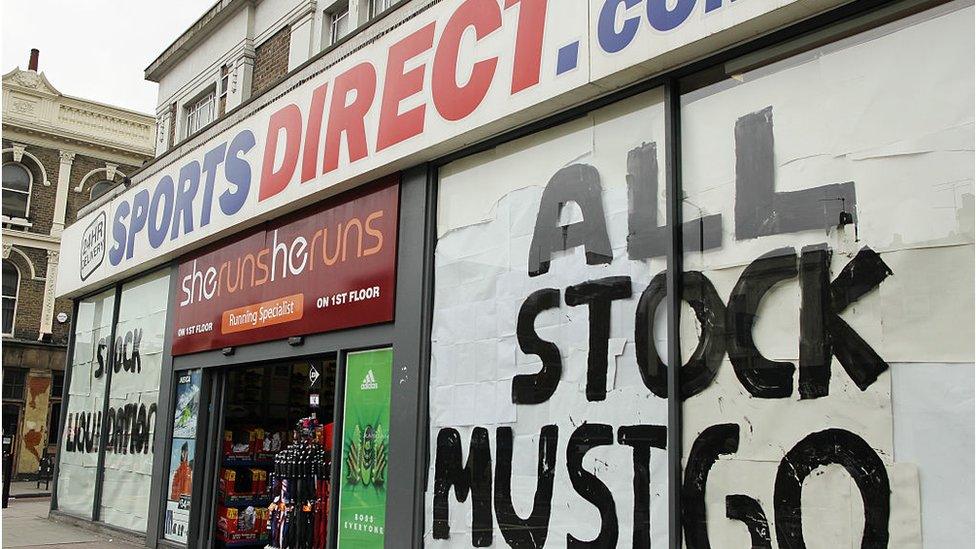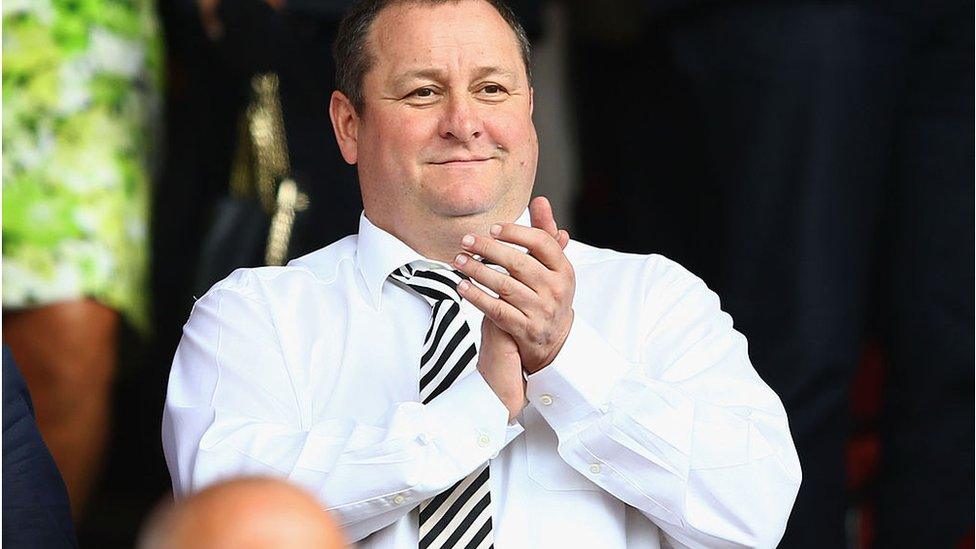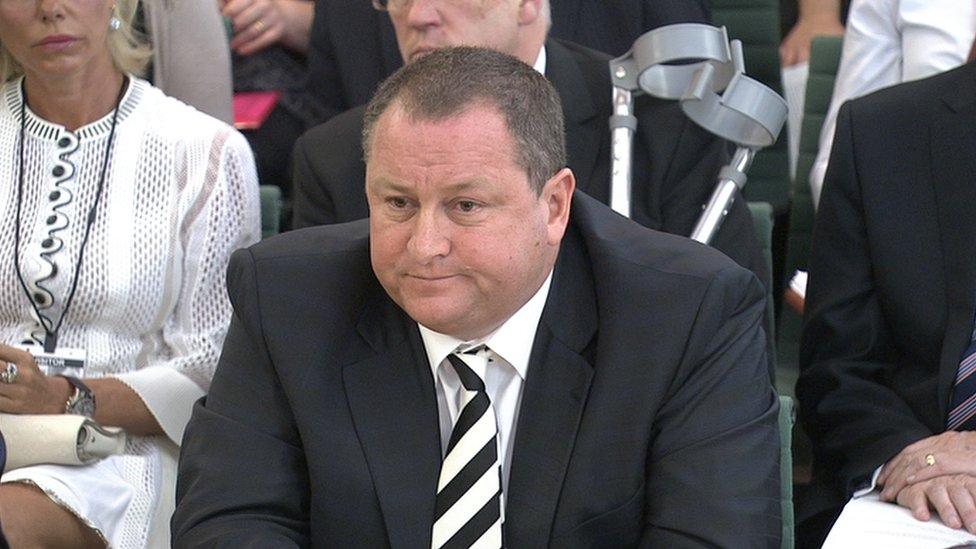Sports Direct profits dented by negative publicity
- Published

Sports Direct profits hit by bad publicity and High Street conditions
Profits have fallen sharply at Sports Direct because of negative publicity about its working conditions and a tough High Street environment.
The company posted an 8.4% drop in underlying annual profit on Thursday £275.2m.
But reassurance from the company that it would not go private and that it may buy back shares bolstered its share price, traders said.
Its shares were up by about 6%, having risen 13% earlier in the session.
This put it among the top gainers on Britain's FTSE 250 index of mid-cap companies.
The retailer was harshly criticised for the way it treated its staff, including paying salaries below the minimum wage.

Mike Ashley faced a grilling by MPs over treatment of staff
This resulted in boss Mike Ashley appearing before MPs to answer their concerns.
Sports Direct said current political uncertainty after the UK voted to leave the EU last month was likely to act as a drag on consumer confidence.
Shares in the group had fallen 28% since Britain voted to leave the European Union on 23 June.
Sports Direct warned on the day after the EU referendum that the fall in the value of sterling against the dollar was likely to have an effect on stock purchases for which it was not hedged this financial year and beyond.
The pound has fallen to below $1.30 against the dollar since the referendum, from just below $1.50 before the vote.
The retailer said lower traffic on the High Street and the weaker pound made the outlook for next year hard to predict.
"When combined with the structural difficulties for UK retailers, including High Street footfall, and our exposure to the weakness of the pound against the U.S. dollar, these factors make the current outlook for [2017] somewhat uncertain and therefore hard to predict," it said in a statement.
Sports Direct reported pre-tax profit for the year to 24 April of £361.8m ($469m), while revenue was up 2.5% at £2.9bn.
Analysts said that investors feared that results would be even worse, which in part explains the share price rise.
"Disappointing they might have been, but many analysts had feared even worse and so the numbers were greeted with relief by the market," broker Hargreaves Lansdown said in a note.
- Published7 June 2016
